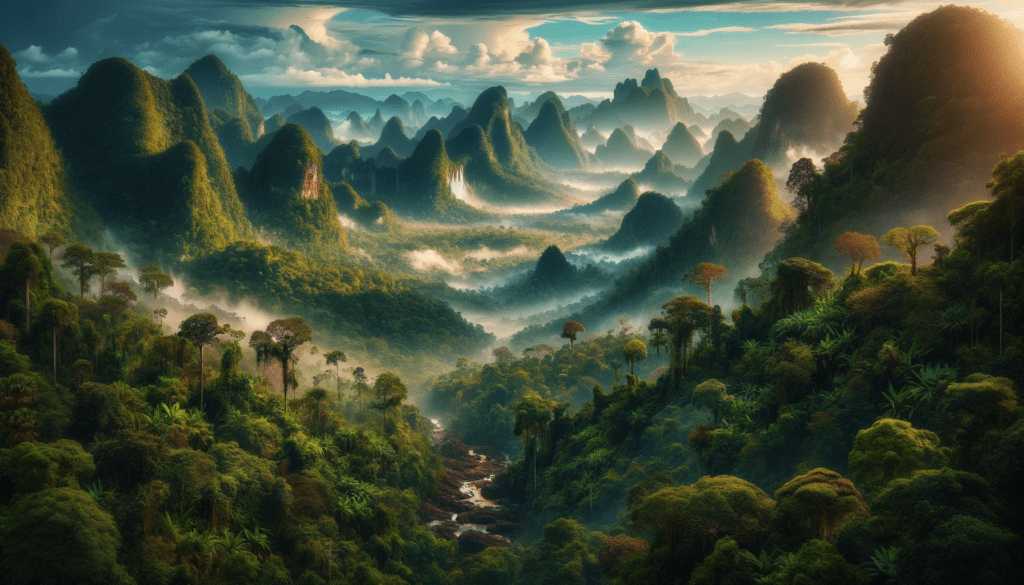Cambodia’s story is one of resilience and renewal. With its rich cultural heritage and a forward-looking vision, the country is navigating its path towards a prosperous and sustainable future. From the splendors of Angkor to the bustling streets of Phnom Penh, Cambodia continues to fascinate and inspire.
List of Public Holidays in Cambodia for 2025
- New Year’s Day is on Wednesday, 1st January 2025.
- Victory Day is on Tuesday, 7th January 2025.
- International Women’s Day is on Saturday, 8th March 2025.
- Khmer New Year is from Monday, 14th April 2025 to Wednesday, 16th April 2025.
- Labour Day is on Thursday, 1st May 2025.
- Visak Bochea Day is on Sunday, 11th May 2025.
- King Norodom Sihamoni’s Birthday is on Wednesday, 14th May 2025.
- Royal Ploughing Ceremony is on Thursday, 15th May 2025.
- Queen Mother’s Birthday is on Wednesday, 18th June 2025.
- Pchum Ben is from Sunday, 21st September 2025 to Tuesday, 23rd September 2025.
- Constitution Day is on Wednesday, 24th September 2025.
- Commemoration of Late King Father is on Wednesday, 15th October 2025.
- King Norodom Sihamoni’s Coronation Day is on Wednesday, 29th October 2025.
- Bon Om Touk is from Tuesday, 4th November 2025 to Thursday, 6th November 2025.
- Independence Day is on Sunday, 9th November 2025.
- Peace Day is on Monday, 29th December 2025.
List of Public Holidays in Cambodia for 2024
- New Year’s Day: Monday, 1 January 2024
- Victory Day: Sunday, 7 January 2024
- Victory Day Holiday: Monday, 8 January 2024
- International Women’s Day: Friday, 8 March 2024
- Khmer New Year: Saturday, 13 April 2024, to Tuesday, 16 April 2024
- Labour Day: Wednesday, 1 May 2024
- King Norodom Sihamoni’s Birthday: Tuesday, 14 May 2024
- Visak Bochea Day: Wednesday, 22 May 2024
- Royal Ploughing Ceremony: Sunday, 26 May 2024
- Royal Ploughing Ceremony Holiday: Monday, 27 May 2024
- Queen Mother’s Birthday: Tuesday, 18 June 2024
- Constitution Day: Tuesday, 24 September 2024
- Pchum Ben: Tuesday, 1 October 2024, to Thursday, 3 October 2024
- Commemoration of Late King Father: Tuesday, 15 October 2024
- King Norodom Sihamoni’s Coronation Day: Tuesday, 29 October 2024
- Independence Day: Saturday, 9 November 2024
- Bon Om Touk: Thursday, 14 November 2024, to Saturday, 16 November 2024

Cambodia: A Journey Through Time, Tradition, and Transformation
Cambodia, known for its rich history, stunning temples, and resilient spirit, is a country that tells a story of glory, tragedy, and revival. Nestled in the heart of Southeast Asia, bordering with Vietnam, Laos and Thailand, it is a land where ancient ruins whisper tales of a powerful empire and where the vibrancy of contemporary life illustrates its ongoing resurgence.
Historical Introduction to Cambodia
Cambodia’s history is both illustrious and somber. The ancient Khmer Empire, which peaked between the 9th and 15th centuries, left a legacy of architectural marvels, including the world-famous Angkor Wat. The decline of the Khmer Empire gave way to periods of Siamese and Vietnamese domination, followed by French colonial rule in the 19th century. The mid-20th century saw Cambodia gain independence, only to be plunged into the horrors of the Khmer Rouge regime in the 1970s, resulting in profound national trauma. The subsequent years have been a journey towards healing and rebuilding.
Geographical Diversity
Cambodia’s landscape is characterized by a central plain, bordered by mountain ranges to the north and the east, and the Gulf of Thailand to the southwest. The mighty Mekong River and the Tonle Sap (Great Lake) are pivotal to the country’s ecosystem and agriculture. The country’s climate is tropical, marked by a wet monsoon season and a dry season. Countries with a border to Cambodia ar Vietnam on the east, Thailand on the north west, and Laos directly north.
Cultural Heritage
Cambodian culture, influenced by Theravada Buddhism, resonates in its art, dance, and music. Traditional Apsara dance, intricate silk weaving, and shadow puppetry are integral parts of its cultural identity. The Khmer language is the most widely spoken, and the country’s cuisine, known for dishes like Fish Amok and Khmer curry, reflects the subtleties of Cambodian flavors.
Economic Landscape
Once an agrarian society, Cambodia’s economy has diversified in recent decades. Key sectors include garments manufacturing, tourism, agriculture, and construction. The tourism industry, centered around the Angkor region, is a significant source of revenue, although it faces challenges like overdevelopment and sustainability.
Political Framework
Cambodia is a constitutional monarchy with a parliamentary form of government. The political scene has been dominated by the Cambodian People’s Party since the 1990s, with Prime Minister Hun Sen being a central figure. The country continues to grapple with issues of governance, human rights, and political freedom.
Societal Dynamics
Cambodian society is marked by its youthful population and a blend of traditional and modern influences. The nation faces challenges in education, healthcare, and rural development. Efforts are underway to address poverty reduction, improve access to education, and enhance healthcare services.
Arts and Literature
The Cambodian arts scene, recovering from the decimation of artists during the Khmer Rouge era, is experiencing a renaissance. Traditional arts are being revived, and contemporary artists are gaining recognition. The country’s literature, historically rich in folklore and religious texts, is evolving with new voices emerging in poetry and fiction.

Natural Beauty and Tourism
Cambodia’s natural beauty, from the Cardamom Mountains’ dense forests to the idyllic beaches of Sihanoukville, is a draw for tourists. Ecotourism initiatives are increasingly popular, promoting sustainable travel experiences.
Global Engagement
As a member of ASEAN and other international organizations, Cambodia is actively engaging in global and regional dialogues. Its foreign policy focuses on economic development, regional stability, and fostering international partnerships.
Challenges and Prospects
The country faces the dual challenge of preserving its cultural heritage and natural resources while pursuing economic growth. Addressing issues like corruption, environmental sustainability, and social inequality is crucial for its future development.

